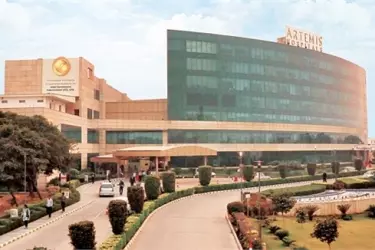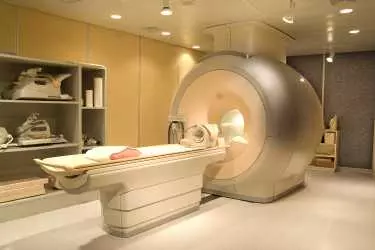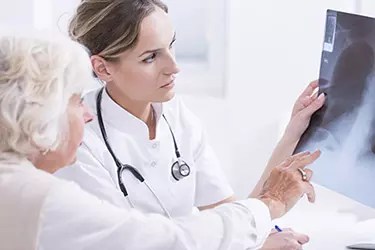Heart is the most important organ in the human body. A person is considered alive till the heart is working. Human body requires sugar and oxygen to stay alive. The sugar extracted from the food that we eat is transported to all the cells of the body through the blood. The blood containing sugar and oxygen is pumped by the heart. The heart is like a pump which beats 70-80 times per minute in order to pump the entire blood in our body.
The blood is carried to all the cells of the body through a network of blood vessels called arteries and veins. The blood supplies oxygen and sugar to each cell of the body and brings the waste material from these cells to the kidneys to be excreted from the body. After completing this cycle the blood enters the heart again through 3 major arteries. Due to high levels of fat in the blood, there is deposition of fats in these arteries. This deposition also knows as plaque obstructs the supply of blood to the heart and results in heart attack. This is the most common type of heart disease and is called Coronary Artery Disease.
The food that you consume contains fat, proteins, carbohydrates, vitamins, minerals, fiber and water. These nutrients are absorbed by the intestine and put into the bloodstream. The carbohydrates in the food are converted into tryglycerides which get deposited in the body as fat. The saturated fats in the food come into the blood as LDL while the good fat comes as HDL. If the levels of LDL in the blood are high and the levels of HDL are low then the LDL gets deposited in the arteries and causes blockages. The best test to find out the blockages in the arteries is Coronary Angiography.

Coronary Angiography is the test to check the blockages in the Coronary Arteries and other defects in the functioning of the heart. In this test a thin wire is inserted into the artery of your leg or wrist. This wire is slowly pushed into the artery till it reaches the arteries supplying blood to the heart. The patient is lying on a table in a room called Cathlab.
Cathlab is a C Shaped machine just like the CT Scan machine. The patient lies on the table and X-Rays are fired from the C shaped structure. The other side of this C shaped structure has a digital detector which captures images of the heart and the arteries. The patient is injected with a liquid which has iodine in it. This liquid called dye helps in capturing the flow of blood in the arteries. If the flow of blood is continuous then it is assumed that the arteries do not have any kind of blockages. If the flow of blood breaks at some point then it indicates the presence of blockage in the artery. The cardiologist doing the test measures the amount of blockage in the artery. If the blockage is more than 60-70 percent then the patient is advised to undergo angioplasty.
The dye which is injected in the blood for carrying out this test is flushed out of the body by the kidneys in 24-48 hours. However if the patient has high levels of creatinine or urea which is measured in kidney function test then the dye cannot be injected and thus Coronary Angiography cannot be done on such a patient. For such patients non contrast MR Angiography of the heart is usually advised.
Coronary Angiography test would cost in the range of Rs. 15000-18000. The patient needs to undergo kidney function test before doing Coronary Angiography. The cost of this test is Rs. 1000. This test is done in daycare. The patient is admitted to the hospital in the morning and gets discharged by the evening. Some of the patients who test positive on TMT are also advised to undergo Coronary Angiography. Angiography of the heart can be done on CT Scan also which is a completely non-invasive procedure. The cost of CT Coronary Angiography is also in the range of Rs. 12-15 thousand. The results of CT Coronary Angigraphy are not as accurate as the results of Cathlab Coronary Angiography. Dr Sandeep Parekh in Chandigarh, Punjab at Indus Hospital, Chandigarh and Dr D K Jhamb at Sanar International Hospital, Gurgaon are the best cardiologist or heart specialist for angiogrpahy in India
If coronary angiography reveals blockages in the arteries then a procedure called stenting is done. The cost of stenting in each artery is in the range of Rs. 1.5 - 1.75 lacs. If there are multiple blockages in one artery then this cost can go up.
If your doctor decides to treat the patient with medicines after doing coronary angiography then the cost of treatment would be much lower. However you would have to make significant lifestyle changes to improve the health of your heart.

Our hospitals are located in the northern part of India specially in the NCR region comprising New Delhi, Gurgaon, Noida and Faridabad which all are within a distance of 20-50 kms from the New Delhi airport. Our hospitals are super specialty in the fields of Neurosurgery, Cardiology, Joint Replacement, Cancer Care, Liver and Kidney Transplants, Cosmetic Surgery and many other branches of medicine. All our hospitals offer quality treatment and are accreditated by NABH or JCI. For patients coming from other countries our team members would receive you at the airport and escort you to the hospital or the hotel as the case maybe.

We have the MRI, Low Radiation CT Scan, ,Digital X-Ray Bone Densitometry (DEXA), Mammography, Ultrasound, Colour Doppler, EEG, NCV, EMG, TMT, Echocardiography and the most advanced Pathology Lab which gives us the diagnostic confidence for providing the right treatment.
Modular fully equipped Operation Theatres with Computer Navigation and C-Arm backed by a state of art ICU helps us in providing world class treatment to our patients. We are equipped to handle the most complex of the surgeries due to the state of art cutting edge technology.

Our team of doctors include some of the best names from the Indian Medical Fraternity. Dr Arun Saroha Dr V.S.Mehta, Dr Vikas Kathuria, Dr Sandeep Vaishya in Neurosurgery, Dr Sumita Singh in Breast and Piles, Dr AK Sethi, Dr Anubhav Jain, Dr Subhash Jangid, Dr Debashish, Dr Anuj Chawla, Dr Ratnav Ratan, Dr Reetandyuti and Dr Praveen Tittal in Joints, Dr Priyanjana Sharma in ENT, Dr Kaushal Yadav, Dr Ankur Garg, Dr Shilpi Sharma, Dr Abhishek Mitra in Cancer Surgery, Dr Pramod Prasad, Dr Sumita Singh and Dr Vikram Singh in GI Laparoscopic Surgery, Dr Sadhna Sharma, Dr Anjali Kumar and Dr Parvinder Kaur in Obs, Gynae and Infertility, Dr Raman Tanwar and Dr Chandrakant Kar in Urology, Dr Sumita Singh for Pilonidal Sinus Surgery are some of the key doctors with us.
This patient in India was suffering from Diabetic Neuropathy but could not consult a Neurologist before 6 months so the patient came to India and recovered fully in just 15 days. Watch the video above to know the full story.
In this video you would see the patients from several countries sharing their experiences about treatment in Indian Hospitals for all kinds of conditions. Watch the video to know what to expect when you come to India.
This is the story of a Bangldeshi Patient who was shot in the neck in line of duty and got complete quadriplegia due to the injury. Watch the video to see the amazing recovery due to the treatment provided in India.